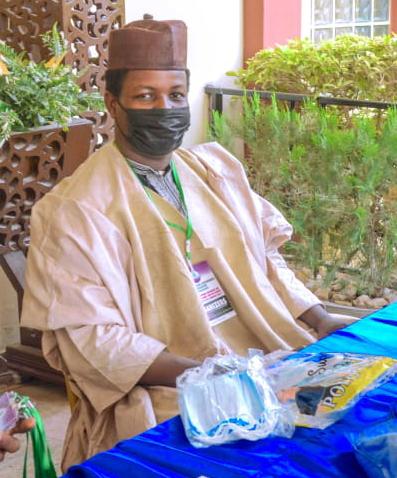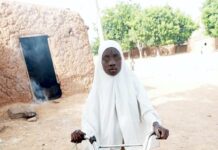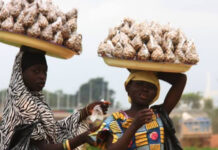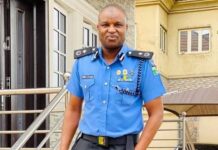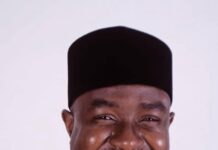Nothern Nigerian Insecurity: Invest in Media, A Way Forward – Ahmad Zuwa Daya
INFOMEDIA – Society has been a network for social interaction, communication and association, within groups or institutional level been regulated under certain mechanism rooted out of cultural norms (law). Protection of life, properties, and all aspects of social life is called security.
The concept of traditional security originated from a Latin word called ‘securitas’, which literary means encompassing the safety of lives and properties of the denizens of the node. Security is safety and defence, freedom from danger and anxiety, freedom from risk, freedom from doubt and freedom from financial worries (Abdullahi, 2012).
In a broader concept, security/insecurity could be defined in relation to vulnerability, both internal and external that threatened to have the potential break down or weaken state structures both territorial, institutional and state regime.
The broader conception of security does not pay attention to only one area of social life. It include: economic, territorial, environmental, food, health, political and all other aspects of social life. Anything you are capable of having in possession is called security. For example, each and every nation have it origin in cropping and agricultural species, Nigeria in 1970s was among the major nations that depends on agriculture with it’s citizens residing in the rural areas, countries like Ghana, Benin, Niger, Togo relied on Nigerian agriculture in those days. But the universal demand for oil and industrial boom (white collar job) distracted and destroyed our agricultural produce and uplift oil money which led to the abandonment of farming and migration from rural to urban city; over population, destitution and high rate of crime increased. Today, Nigeria lack food security; streets begging have become the order of the day. Another example is on our health care system ranging from primary, secondary and tertiary. Health is also crucial to food development, health determine how healthy a society is in addressing labour issues and social happening, when society is exposed to deasese like corona virus, it is often attached to the weakness of the government in ensuring mandatory strategies for sensitizing individual personality. Billions of naira have uncountably been budgeted to health sector but, the incapacity to ensure strategic transparency and accountability has dragged Nigeria into health insecurity, and also all other forms of security.
Media and society are closely related to each other. The extensive impact of media on society can easily be seen these days. Media reflects our society, how it works and what it constitutes. With the advancement in technological area, our society has also observed the expansion in the thoughts and ideas of people. Every single invention starting from the printing press to the latest smartphones our society has accepted it. Earlier people used to communicate things with the help of sketch and print forms but as time passes the medium became more advanced.
Today people are just a click away from any and every information that is available on the internet. There are various forms of media that help to inform, educate and entertain our society. Media can be in print form that is through newspapers, books, magazines etc. Media includes an electronic form for spreading information which is one of the most used media of mass communication. With the help of radio and TV, listeners and viewers not only get updated but it also creates an understanding of current happenings.
Radio being an audio medium helps in disseminating information to every nook and corner of our country. Radio has also played a vital role in creating a platform for imagination. The reach of this audio medium is not only limited to urban areas but it has covered a wide range even to the remote areas of our country. The people living in rural parts of the country are getting more benefits from the audio medium of mass communication. The programs on radio cater the interest of rural section which constitutes small-scale industries, farming, forestry, fisheries etc which has helped the rural people in their day to day life matters.
On the other hand, TV is the second mostused medium in terms of reach. Visuals and audio when combined together help in better understanding and provides up-to-date information. News from all parts of the country is investigated and presented through this medium of mass communication. Initially, Television in our country was introduced for education purpose. But later as time passes the objective of educating people turned into imparting information and entertaining masses. Today Television has become an important part of our daily life. It covers a vast section of programs like daily soaps, news, movies, reality shows, sports, weather forecast, religious programs, music etc.
Social media is becoming one of the most popular and most accessed media of communication these days. Social media has brought different people from the different geographical area on one platform on which they can share their feeling, ideas, emotions, information and much more.The Manifold social networking sites like Facebook, WhatsApp, Instagram, Twitter, LinkedIn, Google +, and others open the door to share ideas, views, and thoughts on the same platform. With the advancement of science and technology, the world has become a global village.
Today people don’t have to wait for the dissemination process but the condition is such that every social media user has become a source of information on their own. The daily news and views to which the social media user comes across cover a wide range of topics. These topics or subjects are related to the happenings of our surrounding. People can like, show emotions through the list of emoticons or even comment accordingly. The social media act as an umbrella that constitutes a variety of interesting features that have our life very easier. Features of tagging friends, location sharing, photo and video uploads, message chatting, video calling, searching friends etc have made our life more engaging.
We are now at the peak of globalisation (libralism) which gave birth secularism. Due to high level of increasement in information communication technology; organized international criminal industries (bandits, kidnappers, boko haram, biafrans, niger/delta miltants and the rest) uses social media and phone calls in planning their illegal activities; and then implement it the physical space.
Recently, there was an international kidnapping industry owned by Chukwudi Dumee Onuamadike, popularly known as Evans, is a Nigerian alleged kidnapper. Onuamadike is a native of Nnewi, Anambra State. He is sometimes referred to as “The Billionaire Kidnapper” because the Nigeria Police Force believed he was one of the richest criminals in the kidnapping business in Nigeria. He used phone calls to and social media to planned his activities, due to his sophistication; even his boys don’t know him physically. They unite in the cyberspace, planned, implement and also be paid on cyberspace. Unfortunately, hundred days for the thief and one day for the owner. He was arrested at Lagos state by Inspector General of Police team; Intelligence Response Unit headed by Deputy Commissioner, Abba Kyari. Billions of Naira are recovered, mansions worth billions are also recovered. He is indeed the most richest kidnapper in Nigeria. Evans has been sentenced to death after been trialed for 3 years for kidnapping and other notorious criminal activities. He was sentenced to death by a Federal High Court in Lagos, after he was found guilty of kidnapping.
Another incident, Wadume whose real name is Hamisu Bala is a Nigerian kidnap for ransom kingpin based in Taraba State but operated across Northeast, Northwest and North central states. He was arrested in August 2019 by the Nigerian Inspector General of Police team; Intelligence Response Team headed by Deputy Commissioner, Abba kyari. Wadume was arrested in August 2019 while drinking tea with friends in his house in Ibi Town, Taraba State. While being conveyed to Abuja for further investigation, police vehicle came under attack at a check point manned by soldiers after passing first military check point where they reportedly identified themselves as police officers from Abuja and that they were holding a kidnap kinpi(Wadume) reportedly known to the Commander of the military check points. The soldiers at the second check point said they were alerted that the occupants of the vehicle were kidnappers who had just kidnapped Wadume in his house and being taken away to a hideout. On the order of Captain the soldiers chased after the police vehicle on a rescue mission firing shots at the vehicle. By the time the police vehicle stopped three police officers and two civilians had been killed and five others were injured in the shooting. Wadume was freed from leg and handcuffs by the soldiers and asked to go home but Wadume went into hiding prompting a fresh manhunt for him. This raised a suspicion of conspiracy. Later the police issued a statement that the police team who arrested Wadume had informed the soldiers that they were on security operations around the area to effect the arrest of criminals but the military denied that it had been informed before the operation was carried. It was revealed in the cause of investigation that the army captain had 191 phone conversations (imagine the number of calls, what is the function of NCC) prior to the incident. On 19 August 2019, Wadume was re-arrested by Police in a hideout at Latin Mai Allo Hotoro in Kano State. On 26th August 2019, four of Wadume’s victims identified him as the leader of the kidnap gang that seized them for ramson and said they would testify against him during court trial. The police recovered four AK47 and two K2 rifles from one of Wadume’s relations who said the weapons belong to Wadume. Investigation revealed that Wadume had purchased 10 AK47 rifles from a black market within one year and supplied terrorists in the northeast and cattle rustlers across Northern region. On 8 June 2020, the federal government of Nigeria arraigned Wadume along with six others on 13 count charges of terrorism. One of the charges read: “That you Hamisu Bala, (aka Wadume) of Ibi Local Government Area, Taraba between February and April 2019 at Takum and Ibi Local Government Area, within the jurisdiction of this court, knowingly seized and detained one Usman Garba at his filling station in Takum, demanded and collected a ransom of N106 million before he was released”. Wadume and all his co-accused pleaded ‘not guilty’ after the charges were read to them.
Read Also:
As a result of the fear engendered by the use of arms in bandit’s operations and the breakdown of informal norms of trust and cooperation, armed banditry must be seen to have an impact on decisions relating to personal mobility, social cohesion, and disrupts political participation, child schooling, employment and personal protection. These indirect effects are often unnoticed because they are hidden. For example, armed banditry can lead to a decline in food production, while the ensuing deprivation can result in domestic violence that is itself reproduced over time. Some negative implications that may result from incessant incidents of armed banditry relate to a society’s social capital in terms of family and communal cohesion, gender relations, and customary institutions that condition social control and may undermine the prospects for human development. Incidents of armed banditry have in some instances been accompanied by sexual violence against women and young girls, the consequences of which cannot be overlooked, they all carry plan their activities in cyberspace, communication using phone calls during the collation of ransom.
Nnamdi Okwu Kanu (born 25 September 1967) is a British Nigerian Biafra political activist. He is the leader of the Indigenous People of Biafra (IPOB). The main aim of IPOB is to create an independent state for the people of old Eastern Region of Nigeria through referendum. Kanu is the director of a UK registered radio station named Radio Biafra. Kanu was arrested on treason charges in Lagos, Nigeria on 14 October 2015 and was detained for more than a year, despite various court orders that ruled for his release. When in court, Kanu appeared regularly wearing a Jewish prayer shawl and head covering. He said in court, that he “believes in Judaism” and considers himself a Jew and oftentimes has led his Biafran people to various Jewish prayers and religious observations. On 28 April 2017, Kanu was released from prison on bail. He motivated the Endsars protesters through live audio programs to destroy Lagos; he was even saying “Tinubu Hospital must be shut down” and many more. It is only through media that he will have the access to held those programs without been apprehended.
Boko Haram (Northeastern terrorists) also uses social media in planning and carrying out their activities as well as sending videos in order to intimidates the rightful authority. Cross-media communications are core part of the strategies of Al-Shabaab, Boko Haram and ISIL, as highlighted by the groups’ dedicated branches for media planning, namely al-Shabaab’s al-Kata’ib, Boko Haram’s Media Office of West Africa Province and ISIL’s Al Hayat Media Center. Driven in part by technological advances and expanded Internet access in parts of Africa (Nigeria is not excluded), the use of social media by all three groups has increased in recent years–although this varies by geographical area depending on the level of ICT penetration. The widest range of social media platforms. While Boko Haram’s use of social media is the least advanced of the three groups, it has become more sophisticated since pledging allegiance to ISIL in 2015. While all three groups use social media for propaganda and recruitment, ‘offline’ influences can also play a role in radicalisation. Boko Haram, al-Shabaab and ISIL all appear to use social media as a propaganda tool. For these groups, social media propaganda is used to claim or publicise attacks or kidnappings with, for example, Boko Haram’s kidnapping of 276 schoolgirls in April 2014 sparking the international media campaign known as #BringBackOurGirls. They also use social media propaganda to criticise the rightful authority, demonstrate the effectiveness of their tactics and, in ISIL’s case, appeal to potential foreign fighters, their families and potential perpetrators of ‘lone wolf’ attacks on the West. There is evidence to suggest that al-Shabaab, ISIL and, to a lesser extent, Boko Haram also use social media to attract recruits, both domestically and internationally. ISIL draws on a variety of platforms including Telegram, Kik and WhatsApp to engage with potential recruits. In some part, due to YouTube’s content removal efforts, al-Shabaab engages with potential recruits through closed chatrooms involving ilitary commanders and diaspora fighters. While Boko Haram has made some effort to radicalise individuals online–for example, by tweeting links to recruitment videos–the group does not appear to use social media for recruitment to the same extent as al-Shabaab and ISIL. Social media platforms such as Telegram have equipped ISIL with a free encrypted tool for coordinating its messaging and military planning. However, social media instead creates challenges for al-Shabaab’s coordination efforts: the growth of the Internet appears to have led to a ‘loss of control’ of the narrative by leaders, with messaging becoming increasingly decentralised and independent jihadists reportedly undermining the group’s messaging. With the exception of reports that al-Shabaab uses the Internet to secure funding from sympathetic Salafi networks, there is limited publicly available evidence regarding if and how the three groups use social media in order to secure funding. It is clear that al-Shabaab, Boko Haram and ISIL use social media to share propaganda, attract recruits and coordinate their followers-all of which can contribute to radicalisation. However, these online influences are often complemented by the ‘offline’ influences of family and peer networks. For example, Boko Haram operatives are said to use ‘middle men’ in remote areas without Internet access to share social media messaging with local communities through in-person interaction. Similarly, there is evidence to suggest that Boko Haram attracts young recruits through the influence of religious leaders–as seen in the case of the radicalisation of medical students in Nigeria.
In view of above insecurity, below are some recommendations that can serve as solutions to the manace bedeviling northern Nigerian Security architecture:
Digital Policing: From browsing the internet, to accessing social media, banking and shopping online, it is fair to say that our world has gone digital. Public expectations of how they interact with policing are changing. The public now expect the police to have a significant online presence, with a similar level of functionality and ease of use to other services they access on a daily basis. While many advances in technology offer huge benefits on how people communicate and transact, digital or ‘cyber’ crimes have also increased significantly in recent years. In addition, the volume of digital evidence will only continue to increase. Policing has to adapt and respond to this changing digital environment to ensure that it can relentlessly pursue criminals, protect the vulnerable and reduce crime, wherever that occurs. It makes it easier for the police and public to communicate with each other, Improve digital investigations and intelligence, Transfer all information with the Criminal Justice System (CJS) digitally. This will surely advanced the level of insecurity in northern Nigeria.
The Government: The Nigerian Communications Commission (NCC) is an independent regulatory authority (Ministry) for the telecommunications industry in Nigeria. The NCC was created under Decree number 75 the [Federal Military Government of Nigeria] on 24 November 1992. The NCC was charged with the responsibility of regulating the supply of telecommunications services and facilities, promoting competition, and setting performance standards for telephone services in Nigeria. The Decree has been abrogated and replaced with the Nigerian Communications Act (NCA) 2003. Umar Garba is the present head of (NCC) assumed office since 2015. Unfortunately, Nigeria have poor communication system. All the terrorists uses media in recruitments, planning illegal activities, get paid online, contacts with kidnappers with a phone call. There is the urgent need for strengthening our communication system so as to counter the their illegal activities. All calls and media post should be monitored, through that officers will find it easy to track and apprehend the criminals.
Social media: The criminal industries use to send intimidating videos of abducted people; calling attention for the ransom payment. Boko Haram also uses social media to send their treason message to the government. Identity flexibility, dissociative anonymity and lack of deterrent factor provide the offender to commit crime and scot free (JAI, 2008). You can commit a cyber-crime here and the implication may be in India. Therefore, I am calling the attention of northern elites to invests in media, most of the media houses are in the south such as sahara reporters, premium time, nigerian tribune, the punch, guidian, triumph, channels, Arewa-24, vanguard, the nation, daily post, daily nigerian (jaafar jaafar) etc. and all are for private investments men. While television: channels tv, tvc, arise tv and the rest. Therefore, in as far as we want to bring an end to these problems; we must invests in media. We have uncountable number of journalists that can maintain the media houses. The burden is too much on the government alone, just like the south, our elites like Dangotte, Abdussamadu, Former Emir of Kano, Sunusi Lamido Sunusi ||, Emir of Bichi, Alhaji Nasiru Ado Bayero and all other rich men have to invests in media so as to pass information in it rightful time and counter criminals. Many journalists are available, but lack of the media industries escalates the menace. These media houses will help in employment and intelligence-led policing. That is why you have never hear about Boko Haram and Armed Bandits in southern parts; because they have private media houses that are passing information in it rightful time.
The Politicians: Nothern politicians are very disgraceful, very unfortunate, just warming a political seat. They are unorganized unlike the southerners. Imagine, how can we be killing and kidnapping our selves by our selves. They are always after their personal interests. I am calling the attention of nothern politicians to unite themselves irrespective of political parties and provide security to the north. We have to wake of from slumber because north is collapsing, the politicians should always be after the interests of the masses. We need security, it is unfair to us for a politician to work with terrorists just to weaken the administration of the opposition party. Again, they should open a private media houses just like Tinubu of Lagos states so that information will be communicated in it rightful time. I am also advising any politician that knows he is also behind all these terrorism to repent; the doors of forgiveness are opened.
Host Community: Members of the community should be always extra-careful, security is every body’s business. The host community members should report any suspicious event, person, gathering, unlawful assembly, stranger through digital policing if achieved. The information will give the law enforcement officers the chance to counter them quickly with the help of the community. Every one should become journalist through passing all Information. Appearance of Police in a community shouldn’t be for danger only, they should become part and parcel of the community ‘police is your friend’. All community elders meeting should always include the police in every community meetings, the police that are responsible for managing the security of life and properties.
I am calling the attention of president Muhammadu Buhari, Northern elites and politicians to consider my observations and solutions with utmost attention and consideration. I have no knowledge to teach or show you how it should be done but, an attempt.
YOU CAN NEVER ACHIEVE ABSOLUTE SECURITY; IT IS THE MATTER OF TIME, SPACE AND PLACE
Ahmad Muktar Saleh (Zuwa Daya)
Accidental Investigative Journalist

